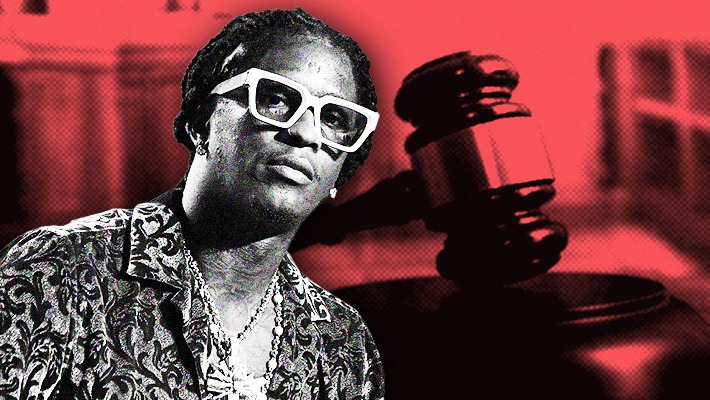Over the past few months, rap fans have placed more and more scrutiny on prosecutors who use rap lyrics as evidence in criminal trials against hip-hop artists. While “hip-hop cops” have long been rumored as a fixture of the justice system, cases involving popular rappers such as Young Thug and YoungBoy Never Broke Again have highlighted how that system tries to turn rappers’ creative expression against them. Using literal interpretations of violent lyrics or shout-outs to alleged criminal groups as evidence is increasingly seen as a violation of artists’ freedom of speech; fortunately, a new development may help to protect that right in the future.
A new bill modeled after New York’s “Rap On Trial” law proposal has been introduced in the US House Of Representatives by Congressmen Hank Johnson (D-GA) and Jamaal Bowman (D-NY). The New York version, which passed the state senate in May, still hasn’t passed the state assembly or been ratified by the governor yet, but its creation turned out to be instructive on the new federal bill, called the Restoring Artistic Protection (RAP) Act (get it?). The RAP Act would change the Federal Rules of Evidence to limit the use of lyrics as evidence.
In a statement, Rep. Bowman said, “Rap, Hip Hop, and every lyrical musical piece is a beautiful form of art and expression that must be protected. Our judicial system disparately criminalizes Black and brown lives, including Black and brown creativity. Evidence shows when juries believe lyrics to be rap lyrics, there’s a tendency to presume it’s a confession, whereas lyrics for other genres of music are understood to be art, not factual reporting. This act would ensure that our evidentiary standards protect the First Amendment right to freedom of expression. We cannot imprison our talented artists for expressing their experiences nor will we let their creativity be suppressed.”
If passed, the RAP Act could protect artists like Young Thug and Gunna, who are accused of alleged ties to a violent street gang. In the racketeering indictment, both are charged with violations of the RICO Act, but the only evidence tying them to the supposed gang is cherry-picked lyrics. Likewise, NBA YoungBoy was given a reprieve from using lyrics to prove he had knowledge of guns when nothing in those lyrics could tie him to the gun found in his car. The burden of evidence should absolutely be higher than “this guy rapped about this thing on a song once, so obviously he did the crime we’re accusing him of.” Thanks to the RAP Act, it could be.

